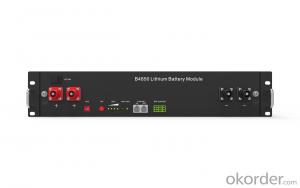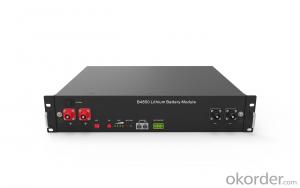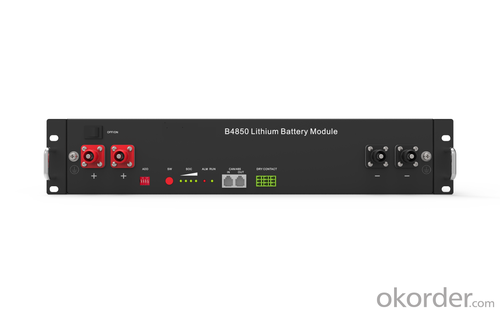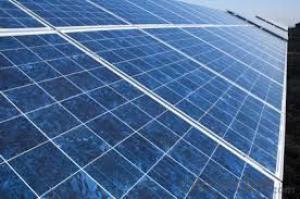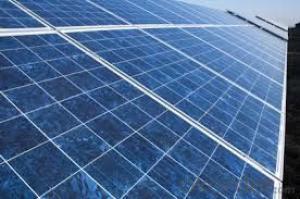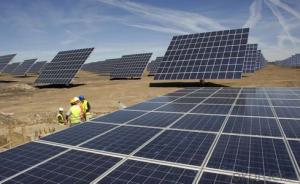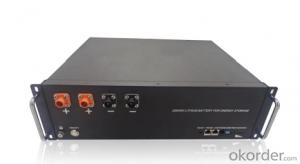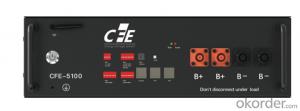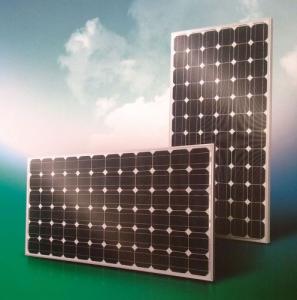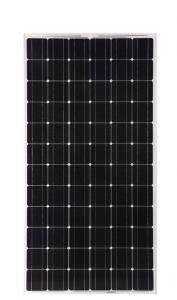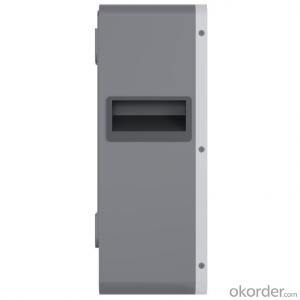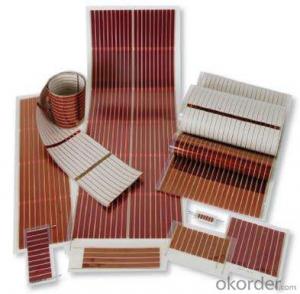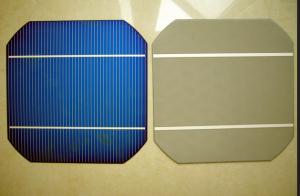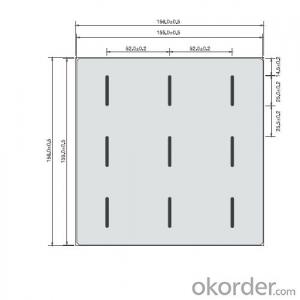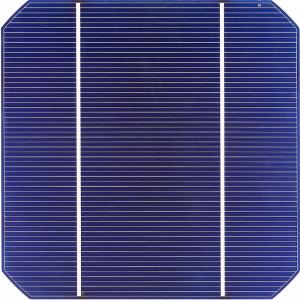Imm Solar Cells B4850 2.4kwh Lithium Battery Module CNBM Storage Battery
- Loading Port:
- China main port
- Payment Terms:
- TT OR LC
- Min Order Qty:
- 10 set
- Supply Capability:
- 1000000 set/month
OKorder Service Pledge
Quality Product, Order Online Tracking, Timely Delivery
OKorder Financial Service
Credit Rating, Credit Services, Credit Purchasing
You Might Also Like
Specification
Material:
lithium
Max. Power(W):
2400
Number of Cells(pieces):
1
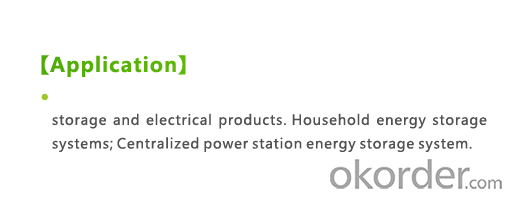
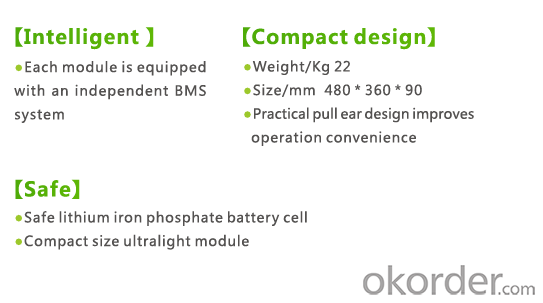
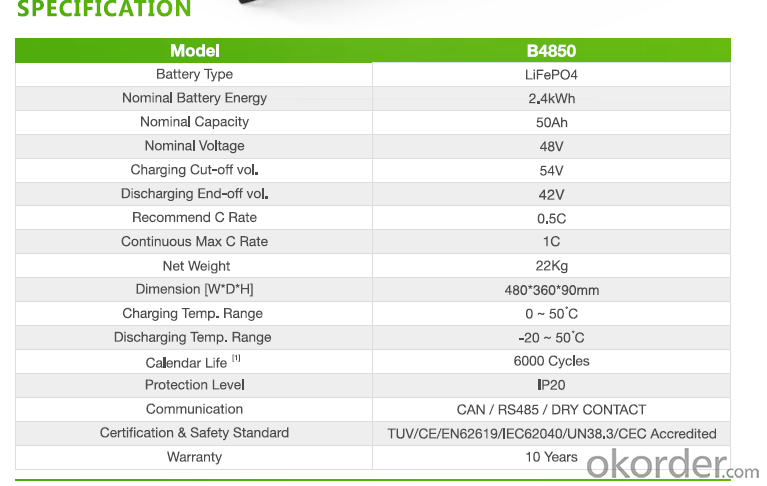
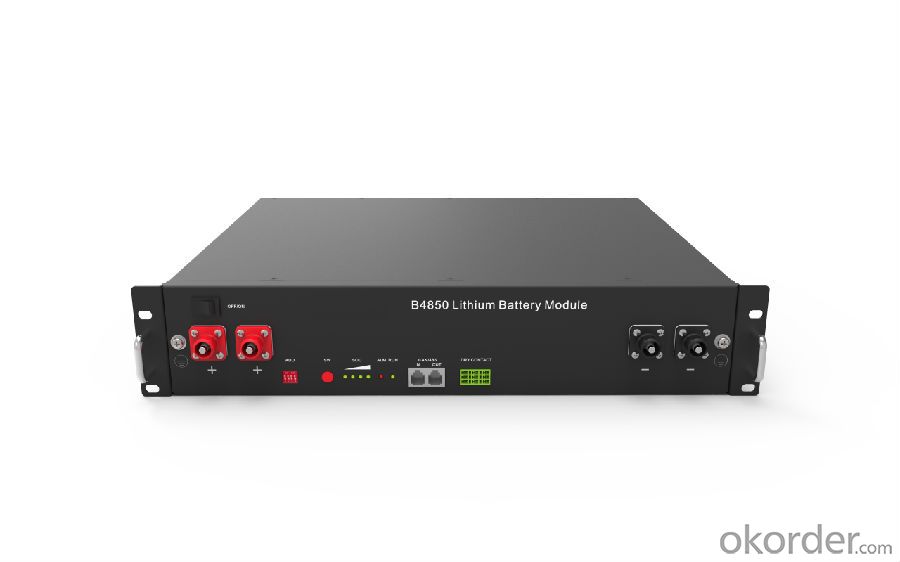
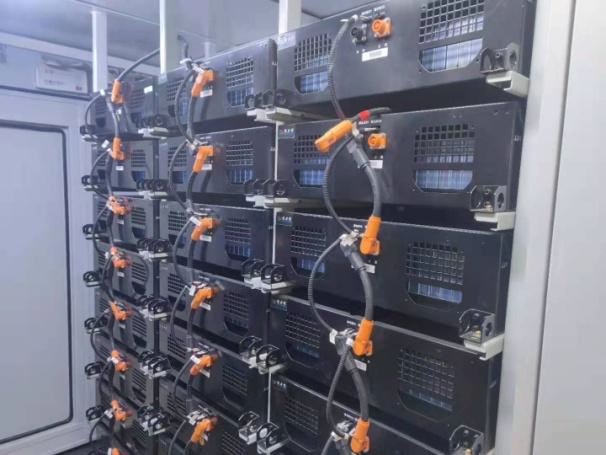
- Q: What is the difference between a solar cell and a solar panel?
- A solar cell is a single unit that converts sunlight directly into electricity, while a solar panel consists of multiple solar cells connected together to generate a higher amount of electricity.
- Q: Are solar cells affected by temperature?
- Yes, solar cells are indeed affected by temperature. High temperatures can cause a decrease in the efficiency of solar cells, resulting in reduced power output. Conversely, low temperatures can sometimes lead to a slight increase in efficiency.
- Q: Can solar cells be used in smart grid systems?
- Yes, solar cells can definitely be used in smart grid systems. Solar cells can generate electricity from sunlight, which can then be integrated into the smart grid to efficiently distribute and manage renewable energy. This allows for the seamless integration of solar power into the grid, reducing reliance on conventional energy sources and promoting a more sustainable and reliable energy system.
- Q: Can solar cells be used in space satellites?
- Yes, solar cells can be used in space satellites. In fact, they are the most common source of power for satellites in space. Solar cells convert sunlight directly into electricity, making them an ideal and efficient source of renewable energy in the space environment.
- Q: Can solar cells be used for powering telecommunications towers?
- Yes, solar cells can be used for powering telecommunications towers. Solar panels can generate electricity by converting sunlight into usable energy, which can then be used to power various devices and infrastructure, including telecommunications towers. This renewable energy source provides a sustainable and environmentally friendly solution for powering such towers, especially in remote or off-grid areas.
- Q: What is the difference between solar cells and solar panels?
- Solar cells and solar panels are closely related but have some key differences. A solar cell refers to a single unit that converts sunlight into electricity through the photovoltaic effect. It is the basic building block of a solar panel. On the other hand, a solar panel, also known as a photovoltaic module, is made up of multiple interconnected solar cells. The purpose of a solar panel is to harness a larger amount of sunlight and generate a higher output of electricity. In summary, while a solar cell is the individual component that directly converts sunlight into electricity, a solar panel is a collection of interconnected solar cells that work together to produce a higher power output.
- Q: Can solar cells be used for powering communication systems?
- Yes, solar cells can be used to power communication systems. Solar cells convert sunlight into electrical energy, which can then be used to power various electronic devices, including communication systems. This renewable source of energy is a sustainable and environmentally friendly option for powering communication systems, especially in remote or off-grid locations where access to traditional power sources may be limited.
- Q: How do solar cells perform in desert environments?
- Solar cells perform exceptionally well in desert environments due to the high levels of sunlight and low humidity. The arid conditions and lack of cloud cover ensure that solar panels receive maximum exposure to sunlight, resulting in increased energy production. Additionally, the dry climate helps prevent dust and debris from accumulating on the panels, minimizing any potential efficiency losses.
- Q: Can solar cells generate electricity at night?
- No, solar cells cannot generate electricity at night as they rely on sunlight to produce electricity.
- Q: Can solar cells be used in airports?
- Yes, solar cells can be used in airports. In fact, many airports around the world have already started using solar panels to generate clean and renewable energy. These solar cells are typically installed on rooftops, canopies, or open areas near the airport to harness sunlight and convert it into electricity. This helps airports reduce their carbon footprint, lower energy costs, and contribute towards sustainability goals.
Send your message to us
Imm Solar Cells B4850 2.4kwh Lithium Battery Module CNBM Storage Battery
- Loading Port:
- China main port
- Payment Terms:
- TT OR LC
- Min Order Qty:
- 10 set
- Supply Capability:
- 1000000 set/month
OKorder Service Pledge
Quality Product, Order Online Tracking, Timely Delivery
OKorder Financial Service
Credit Rating, Credit Services, Credit Purchasing
Similar products
Hot products
Hot Searches
Related keywords
